
What with dog whisperers and horse whisperers telling us how to communicate better with our pets, it should be no wonder that there have been giant strides taken in using our increased knowledge of animal behaviour for human benefit. When the idea of guide dogs for the blind was first suggested, it was viewed with scepticism. It was later regarded as a modern miracle when it was a success.
More recently, assistance and therapy dogs have been bringing greater independence and much joy to thousands of people. Among other things, it has been discovered that dogs can anticipate epilepsy attacks. Others are trained to take over tasks for those in wheelchairs or otherwise disabled.
The dogs will get drinks out of the fridge, pick things up off the floor, take documents from a photo-copier, open and shut doors. The amazing thing is that once a dog has been with a person for a while, the dog itself manages to find a number of other tasks that it can help with. Assistance dogs are like that - hell-bent on helping their owners and making themselves useful.
For the hearing impaired they will alert their owner to the ringing of the telephone or door-bell, or the whistling of the kettle. Now dogs are going in to bat for children with autism - and again the results have been quite remarkable.

Border Collie (above)
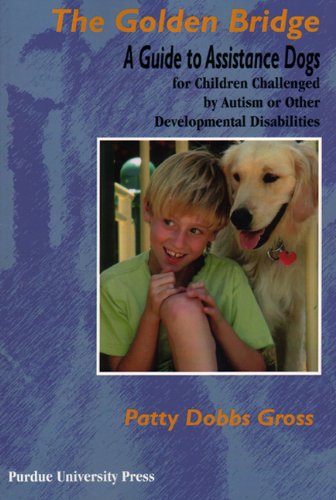 The Golden Bridge (New Directions in the Human-Animal Bond)
The Golden Bridge (New Directions in the Human-Animal Bond)Autism is a difficult diagnosis for parents to deal with. Autistic children have trouble connecting with society and their environment. They are often non-verbal. If they do speak, the skill is not used well and communication is difficult if not impossible. Caring for these kids is extremely challenging and exhausting. Some children escape from their homes so often and with such determination that parents have resorted to putting bars on windows and deadlocks on doors to try to prevent them running away.
The children have no comprehension of coping in the outside world. They run onto streets, approach strangers, go through gates and doors with no understanding of the possible consequences of what they do. Autistic children thrive on an orderly life and become anxious and fearful when their normal routine is disturbed. Repetitive actions and behaviours such as head-banging, rocking and moaning are common with this group of children.
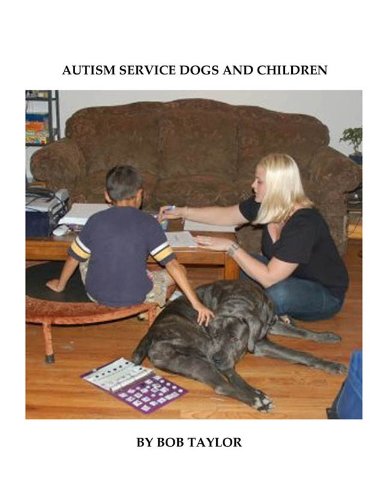 Service Dogs for Kids with Autism
Service Dogs for Kids with AutismThose with autism have trouble sorting through sensory information and stimuli. They find it difficult processing information that is coming in and in reacting appropriately. So while they may hear a smoke alarm going off, they have trouble prioritising between that and anything else that is happening.

Children with Asberger's syndrome are higher functioning but suffer from being aware that they are different to other children. They can have a very hard time at school if steps are not taken to help them cope. For these children, their service dog often takes the place of friends and playmates. Dogs are non-judgemental and accept their charges exactly as they are.
Dog breeds chosen to work with autistic children need to have high intelligence. Some will track their charge if he/she should 'escape'. They will divert children from dangerous situations and alert them to certain stimuli. The main breeds used for this work include the Newfoundland (below), Border Collie, Bloodhound, Golden Retriever (above) and Labrador. However, not all children are suitable subjects for working with an assistance dog.
Once the dog and child bond, the dog becomes very intuitive regarding the child and is often able to pre-empt certain behaviours. Those children who need to be kept firmly by the hand when out of doors may be attached to their dog by a short strap. Far from being distressed by this, the child is happy to be with the dog and rarely reacts negatively. Other children hold the dog's leash and a second, longer leash allows the parent to keep control of the dog. The dogs are trained to obey commands from the parents. Even this simple action allows the adult to have both hands free to write a cheque or take money from their wallet without the worry of the child disappearing.

Children with autism have great difficulty with being touched or held. However they seem to enjoy the tactile experience of petting or stroking their doggy companion. In some cases this has progressed to being able to cope with a hug or touch from parents and siblings. In one documented case, a grade two student with autism was escaping from the classroom 10 to 20 times a day and had an incident rate of 100+ aggressive acts each day. These acts included pinching, hitting and kicking. When the child attended school with his dog, over a period of a month, escape attempts went down to nil and aggressive acts to 10 or 20 a day. The improvement has continued and the child has received his first invitations to birthday parties and sports events. Needless to say, his parents are stoked.
Another three-year-old refused to speak although she was able to. Since receiving her assistance dog, she has been heard giving it orders and whispering in its ear.
The repetitive actions which these children exhibit can sometimes be stopped for brief periods simply by placing a hand briefly on their arm. The dogs are taught to mimic this action by placing a paw on the foot of the child.

There are now several different agencies which are training and supplying autism service dogs. Most train the dogs to a certain standard then, when the dog is assigned to a family, fine-tuning occurs. Often, one partner is trained with the dog to begin with. The trainer will visit the hometown of the recipient and stay for a number of days. Whilst there, the family and trainer will visit many of the places where the family might expect to go.
Adults with autism may also benefit from having a service dog. These wonderful dogs become part of the family and bring great joy and pleasure to their owners. They are shining examples of how canines can become 'man's best friend'.
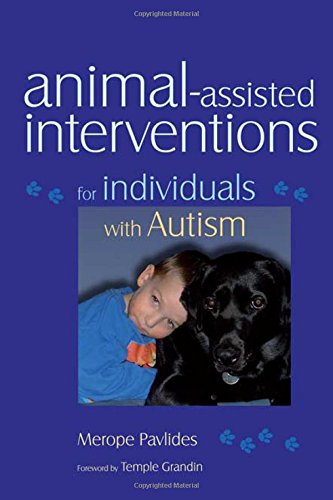 Animal-assisted Interventions for Individuals with Autism
Animal-assisted Interventions for Individuals with Autism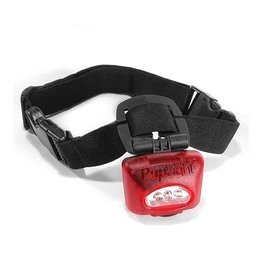 Puplight Dog Safety Light Red
Using a Puplight is a great
Puplight Dog Safety Light Red
Using a Puplight is a great
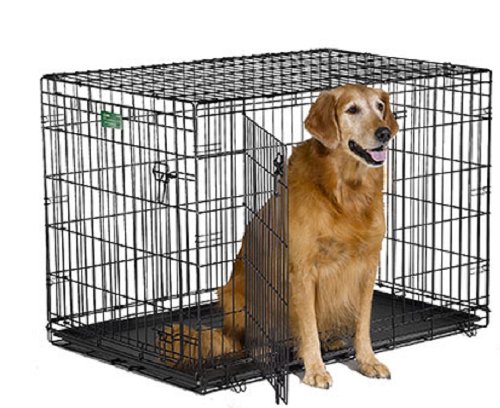 Top 5 Tips On Crate Training a Puppy
Credit: Paige Maguire
Top 5 Tips On Crate Training a Puppy
Credit: Paige Maguire
 The Effects of Nicotine and Secondhand Smoke on Your Dogs
Credit: CDC (PHIL) - Public domain
The Effects of Nicotine and Secondhand Smoke on Your Dogs
Credit: CDC (PHIL) - Public domain
 Tips for Choosing a Boarding Kennel
Credit: Morguefile.com
Tips for Choosing a Boarding Kennel
Credit: Morguefile.com
 Manners Versus Obedience In Dog Training
Most people who get a dog re
Manners Versus Obedience In Dog Training
Most people who get a dog re
Copyright © 2005-2016 Pet Information All Rights Reserved
Contact us: www162date@outlook.com